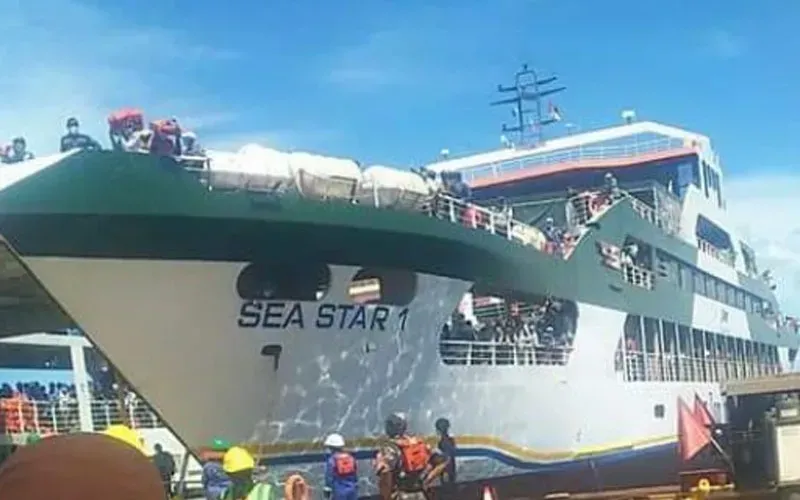The Rwandan National Police have participated in peace and security restoration missions in Côte d’Ivoire, Mali, Liberia, South Sudan, and Haiti, and have assignments at the UN headquarters in New York, Mr. Viljoen narrated.
He further maintained that the source of funding for the intervention of Rwandan troops in Cabo Delgado is not yet known.
The DHPI Director recalled that during the Armed Forces Day celebrations on September 25 in Pemba, Rwanda’s President Paul Kagame and Filipe Nyusi of Mozambique “reiterated that the presence of Rwandan troops is in the context of good bilateral relations between the two States.”
The two Presidents, Mr. Viljoen narrated, asserted that the military intervention was being funded by the Rwandan government and “does not entail future costs for Mozambique.”
“The truth is that Rwanda is not investing millions of dollars in the military intervention in Cabo Delgado without a cost-benefit perspective, even if it is in the medium or long term,” Mr. Viljoen said.
(Story continues below)
He recalled that in October, President Kagame stated that the number of Rwandan troops fighting in Cabo Delgado had increased to two thousand men, practically double the first contingent announced in July.
“Now, the question that arises is how a low-income country would be financing a large-scale military operation with its own funds,” Mr. Viljoen noted, and posed, “Would Rwanda not be receiving indirect funding to support the costs of its intervention in Cabo Delgado?”
He alluded to the possibility that Rwanda is getting financial support from a top French company that has mining interests in Cabo Delgado.
“One hypothesis that has been widely put forward is that Rwanda would be receiving support from the French oil company TotalEnergies or even from the Government of France to finance the operations of its troops in Cabo Delgado,” Mr. Viljoen said.
He added, “TotalEnergies has already said that it is not providing support to foreign forces, but admitted that the Mozambique LNG project, of which it is the operator, provides logistical support to the FDS responsible for security in Afungi, the implementation zone of the project.”
“France may be indirectly financing Rwanda’s intervention in Cabo Delgado, through disbursements made by the French Development Agency supposedly for various development projects,” the DHPI official asserted, adding that France’s President had highlighted the “re-engagement of the French Development Agency”, initiated at his request in 2019, as “another tangible sign” of the relaunch of the bilateral relationship between France and Rwanda.
Officially, Rwanda has applied part of the €130 million funded by France to fight the COVID-19 pandemic and to combat vulnerabilities, global warming and gender inequalities.
On June 30, Uzziel Ndagijimana, Minister of Finance and Economic Planning of the Republic of Rwanda, Rémy Rioux, CEO of the Agence Française de Développement (AFD), and Jérémie Blin, Chargé d’Affaires of the Republic of France to Rwanda, reportedly signed a series of financing agreements, to an overall tune of €49.5 million.
The aim of the financing has been said “to support the Rwandan government's response to the COVID-19 pandemic and help structure the country's vocational training system.”
During President Macron’s visit to Rwanda on May 27, he is said to have announced that France had decided to take its development aid in Rwanda to unprecedented levels.
“€500 million will be committed over the period 2019-2023 around the main priorities of our dialogue with Rwanda, in particular health, digital technology, the Francophone,” said the French President in a report.
DHPI leadership highlights a series of other financial agreements between France and Rwanda, saying, “In light of these agreements of 27 May 2021, Rwandan technology companies will now be able to contact French and European investors and companies through the EuroQuity platform, a service from the French investment bank that aims to support innovative companies in their search for financing and business partnerships.”
Mr. Viljoen said that the Government of Paris had “neither confirmed nor denied” the allegations about financial support to Rwanda, merely stating that it was following with great concern the situation in Cabo Delgado and that it stood by Mozambique in the fight against violent extremism.
The peace entity of SACBC has maintained that the increase of military activity in Cabo Delgado has led to a “dramatic escalation of the crisis in the country.”
Last month, the Catholic peace entity joined the Pan-African Human Rights Defenders Network (AfricanDefenders), Centro Para Democracia e Desenvolvimento (CDD) and other leading Civil Society organizations to dispute the jihadist narrative that is being promoted in the Mozambican crisis.
Locals who spoke to the CSOs in a report narrated that the Mozambican government is using violent means to drive people from their land, which will then be given to investors in the mining sector.
The CSO’s noted with concern that despite the military interventions, the numbers of displaced people in Cabo Delgado continue to rise.
Agnes Aineah is a Kenyan journalist with a background in digital and newspaper reporting. She holds a Master of Arts in Digital Journalism from the Aga Khan University, Graduate School of Media and Communications and a Bachelor's Degree in Linguistics, Media and Communications from Kenya's Moi University. Agnes currently serves as a journalist for ACI Africa.








